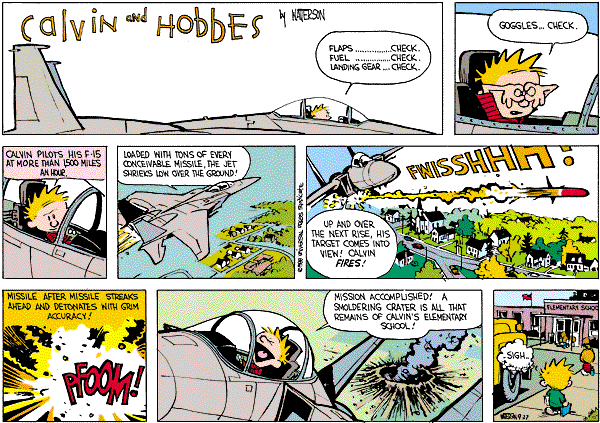Licensing has long been any creative cretin's bread and butter. With the power of licensing, they ensure for themselves a comfortable existence as they attempt to broaden the human consciousness. But this comfort comes with a dark side, for they essentially sell their soul to a corporation in order to enjoy a life of luxury. For some artists, this is a fate worse than death. A laboured love of creation is not something that can be handed over in an instant, and is equivalent to giving up a child.
Of course, for others, the art is merely a means to an end. Jim Davis, the creator of Garfield, for example, admitted that the sole reason the orange tabby ever came about was so that he could create a merchandising empire. But the fact is that for the vast majority of artists, licensing can be seen as the kiss of death for their creations. So, the question is, is licensing a necessary evil?
One of the most common arguments against licensing is that it dilutes the product. This is true to an extent, but it's not necessary that the changes are always adverse in nature. For example, I've always preferred the wry humour of the Garfield TV show to the comics themselves (the movie, on the other hand...well, some things are better left un-watched). Let's take another example to see how this works. On the opposite end of the spectrum of Jim Davis is another comic book artist, Bill Watterson. Mr. Watterson has steadfastly refused to partake in licensing of any kind, and there has been no official merchandise of Calvin and Hobbes ever released. But the key word there is official. Nearly everybody has seen the "pissing Calvin" images. Everybody who has actually read the comics knows that this is an inaccurate depiction of Calvin (for one thing, there is a severe lack of dinosaurs), but the images are ridiculously popular. Due to ill-defined trademarks, Calvin is one of the most bootlegged creations of all time. Sure, Bill might have felt that licensing might have lead to poor animated TV shows and the like (not to mention the potential for actual Hobbes stuffed tigers), but it has led to unofficial proliferation of his beloved characters all the same. Frankly, I'd prefer the real deal.
 |
Licensing also comes with responsibilities. Like it or not, the people who have put money into your product expect to see something accessible, something to appeal to the lowest common denominator. You give up a lot of freedom when you start licensing. This is where a character like Garfield comes in handy. Everybody hates Mondays, and (nearly) everybody loves lasagna. But do you think the strip of Calvin blowing up his school would have been made it into syndication if kids were also tuning into Calvin's misadventures on Saturday morning? It'd be highly unlikely to say the least. Perhaps that was Bill Watterson is trying to hang onto. His artistic integrity.
So we've tackled some of the cons (and pros) of licensing. But the key question, "Is it worth it?", remains to be answered. Stay tuned...

